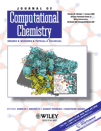
JOURNAL OF COMPUTATIONAL CHEMISTRY
metrics 2024
Leading the Charge in Computational Innovation
Introduction
The Journal of Computational Chemistry, published by Wiley, is a premier platform in the fields of computational chemistry and computational mathematics. Established in 1980 and continuing through 2024, this journal serves as an essential resource for researchers, professionals, and students seeking to advance their understanding and application of computational methods in chemical research. With a commendable impact factor and ranking in the top quartile (Q2) for both Chemistry and Computational Mathematics, it boasts impressive Scopus rankings—22nd out of 189 in Computational Mathematics and 102nd out of 408 in General Chemistry, indicating its strong influence within these scientific communities. While it does not offer open access, the Journal of Computational Chemistry remains a vital venue for disseminating groundbreaking research and fostering collaboration in the computational science landscape. For those at the forefront of innovation, staying abreast of the latest findings published here is indispensable for advancing their work in theoretical and applied chemistry.
Metrics 2024
 0.74
0.74 3.40
3.40 3.70
3.70 208
208Metrics History
Rank 2024
Scopus
IF (Web Of Science)
JCI (Web Of Science)
Quartile History
Similar Journals
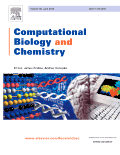
COMPUTATIONAL BIOLOGY AND CHEMISTRY
Bridging Disciplines: Where Computational Biology Meets ChemistryCOMPUTATIONAL BIOLOGY AND CHEMISTRY is a distinguished academic journal published by Elsevier Science Ltd, focusing on the dynamic intersection of computational biology, biochemistry, and chemistry. With an ISSN of 1476-9271 and an E-ISSN of 1476-928X, this journal is committed to disseminating high-quality research that employs computational techniques to solve complex biological and chemical problems. As of 2023, the journal holds a substantial impact factor reflecting its significance and rigorous peer-review process, categorized in the Q2 quartile for both Computational Mathematics and Organic Chemistry, alongside Q3 classifications in Biochemistry and Structural Biology. With a continuous publication history spanning from 2003 to 2024, it serves as a critical resource for researchers, professionals, and students alike. The journal offers various open access options, ensuring that vital research findings are accessible to a global audience, further enhancing collaboration across disciplines. Engage with cutting-edge studies and contribute to the evolving landscape of computational methodologies in the life sciences through this esteemed publication.

Results in Chemistry
Pioneering Discoveries in the World of ChemistryResults in Chemistry is a prominent journal published by Elsevier, dedicated to fostering innovation and disseminating cutting-edge research in the field of chemistry. With an ISSN of 2211-7156, this open-access journal has been committed to making scientific knowledge widely available since 2019, aligning with the global trend towards accessibility in research. Based in the Netherlands, it features interdisciplinary studies that span the breadth of general chemistry, contributing significantly to the academic dialogue within the scientific community. Despite currently holding a Q3 ranking in the miscellaneous category of chemistry and occupying the 228th position out of 408 in Scopus rankings, the journal is poised for growth, aiming to enhance its impact and visibility. Researchers, professionals, and students alike will find invaluable resources and insights within its pages, making Results in Chemistry an essential platform for those looking to stay abreast of advancements and trends in chemistry research up to the year 2024.
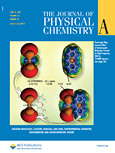
JOURNAL OF PHYSICAL CHEMISTRY A
Elevating knowledge in the realm of molecular phenomena.Journal of Physical Chemistry A, published by the American Chemical Society, serves as a leading platform for disseminating high-quality research in the fields of physical and theoretical chemistry. With an ISSN of 1089-5639 and E-ISSN of 1520-5215, this journal maintains a rigorous standard, demonstrated by its position in the Q2 category for both physical and theoretical chemistry as well as miscellaneous medicine within its 2023 category quartiles. As part of the greater ACS network, it operates with a solid Scopus rank of 76/189, placing it within the 60th percentile, emphasizing its credibility and impact in the chemistry community. The journal's objective is to enhance the understanding of molecular phenomena through innovative experimental and computational approaches, making it essential reading for researchers, professionals, and students seeking to advance their knowledge and contribute to scientific discussion. With additional open access options, the Journal of Physical Chemistry A continues to foster collaboration and the sharing of ideas in the vibrant scientific landscape of the United States and beyond.
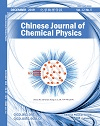
CHINESE JOURNAL OF CHEMICAL PHYSICS
Exploring the Dynamic Landscape of Chemical PhysicsChinese Journal of Chemical Physics, published by the Chinese Physical Society, serves as a pivotal platform for advancing the field of chemical physics, encompassing groundbreaking research and innovative methodologies since its inception in 2000. With an ISSN of 1674-0068 and E-ISSN of 2327-2244, the journal has established itself within the academic community, reflected in its 2023 classification as Q3 in Physical and Theoretical Chemistry and a Scopus rank of #142 out of 189, representing the 25th percentile in this competitive field. Although it does not currently operate as an open-access publication, its commitment to disseminating pivotal scientific research continues to attract scholars and professionals alike. The journal aims to bridge the gap between theoretical principles and practical applications in chemical physics, thereby fostering collaboration and innovation. By contributing significantly to the discourse in this dynamic domain, the Chinese Journal of Chemical Physics remains an essential resource for researchers, professionals, and students eager to stay abreast of contemporary developments.
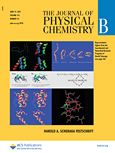
JOURNAL OF PHYSICAL CHEMISTRY B
Unveiling Innovations in Materials ScienceJournal of Physical Chemistry B, published by the American Chemical Society, is a leading international platform dedicated to advancing our understanding of physical chemistry and its applications in various interdisciplinary fields. With an impressive 2023 Impact Factor, and categorized in Q1 for Physical and Theoretical Chemistry as well as Surfaces, Coatings and Films, this journal showcases cutting-edge research that contributes significantly to materials science, supporting the innovative development of new materials and technologies. The journal, established in 1997 and converging its years of publication to 2024, maintains rigorous peer-review standards and is accessible to a global audience, enabling the dissemination of pivotal research findings. Moreover, it is renowned for its comprehensive coverage in the realms of materials chemistry and miscellaneous medical applications, making it a vital resource for researchers, professionals, and students alike in their pursuit of excellence in scientific inquiry.
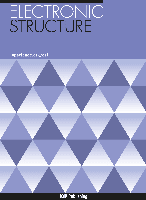
Electronic Structure
Illuminating the Dynamics of Electronic MaterialsElectronic Structure is a pivotal journal in the field of condensed matter physics, published by IOP Publishing Ltd, a prominent name in the dissemination of scientific literature. Since its inception in 2019, the journal has rapidly gained recognition, currently holding a commendable Q1 ranking in Condensed Matter Physics, alongside respectable Q2 rankings in Electrical and Electronic Engineering, Electrochemistry, Electronic, Optical and Magnetic Materials, and Materials Chemistry as of 2023. With a strong emphasis on original research, reviews, and innovative methodologies, Electronic Structure serves as a vital platform for researchers, professionals, and students alike, enabling access to high-impact findings in diverse areas of study relevant to electronic structure and properties of materials. The journal ensures wide dissemination of knowledge in the engineering and physical sciences communities, making it an essential resource for anyone looking to stay at the forefront of advancements in these dynamic fields.
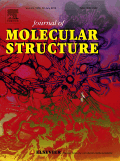
Journal of Molecular Structure
Pioneering research at the forefront of molecular chemistry.Journal of Molecular Structure is a premier publication in the field of chemistry, offering a platform for innovative research that spans analytical, inorganic, organic chemistry, and spectroscopy. Published by Elsevier in the Netherlands, this journal is committed to advancing the understanding of molecular architecture and behavior through high-quality, peer-reviewed articles. With its impressive impact factor and a notable Scopus ranking placing it in the top quartiles among its peers, it serves as an essential resource for researchers, professionals, and students alike. The journal's open access options promote the dissemination of knowledge, ensuring that groundbreaking discoveries reach a broad audience. Established in 1967 and projected to continue through 2025, the Journal of Molecular Structure is vital for anyone engaged in the study of molecular interactions and structural analysis.

STRUCTURAL CHEMISTRY
Exploring Innovative Pathways in Structural ChemistrySTRUCTURAL CHEMISTRY is a premier journal published by SPRINGER/PLENUM PUBLISHERS, dedicated to advancing the study and understanding of the structural aspects of chemistry. With an ISSN of 1040-0400 and an E-ISSN of 1572-9001, this journal serves as a critical resource for researchers and professionals engaged in the fields of Condensed Matter Physics and Physical and Theoretical Chemistry. Since its inception in 1990, it has become an essential platform for disseminating high-quality research, featuring articles that explore innovative methodologies, experimental techniques, and theoretical frameworks. As evidenced by its Scopus rankings, including #192 in Condensed Matter Physics and #101 in Physical and Theoretical Chemistry, the journal occupies a respected position within the academic community, promoting interdisciplinary collaboration and insight. While it operates on a traditional subscription model, the journal continues to broaden its reach to foster knowledge exchange among scholars worldwide. With a commitment to excellence and relevance, STRUCTURAL CHEMISTRY remains a vital contributor to the scientific dialogue surrounding chemical structure and its myriad implications across various scientific disciplines.
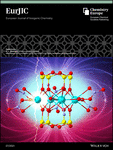
EUROPEAN JOURNAL OF INORGANIC CHEMISTRY
Navigating the Complexities of Inorganic ChemistryThe EUROPEAN JOURNAL OF INORGANIC CHEMISTRY, published by WILEY-V C H VERLAG GMBH, is a premier peer-reviewed journal dedicated to advancing the field of inorganic chemistry. With an ISSN of 1434-1948 and an E-ISSN of 1099-0682, this journal has established itself as a key platform for the dissemination of innovative research, reviews, and features since its inception. As of 2023, it holds a respectable Q2 quartile ranking in the domain of inorganic chemistry, reflecting its influence and contribution to the scientific community—ranking #33 out of 79 in Scopus’ assessment and placing the journal in the 58th percentile. The journal encompasses a wide range of topics within inorganic chemistry, making it a valuable resource for researchers, professionals, and students alike. Although the journal does not currently offer open access, it remains an essential outlet for high-quality, impactful studies in inorganic chemistry, showcasing significant advancements and fostering collaboration among scholars globally.
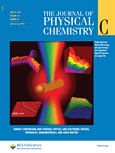
Journal of Physical Chemistry C
Elevating understanding in the realm of physical chemistry.The Journal of Physical Chemistry C, published by the American Chemical Society, stands as a pivotal resource in the realm of materials science and physical chemistry. With an impact factor reflecting its esteemed reputation, this journal showcases high-quality research spanning topics such as electronic, optical, and magnetic materials, as well as nanoscience and nanotechnology. Hailing from the United States, it operates without an open access model, yet its contributions are critical for advancing our understanding of surfaces, coatings, and films. Notably, the journal is classified in Quartile 1 (Q1) for several categories, underscoring its prominence in Physical and Theoretical Chemistry and related fields. Researchers, professionals, and students alike will find value in the comprehensive discussions and innovative research trends presented. The scholarly articles published from 2007 to 2024 not only drive forward scientific inquiry but also inform practical applications in various industries, making this journal an essential tool for anyone committed to excellence in the sciences.